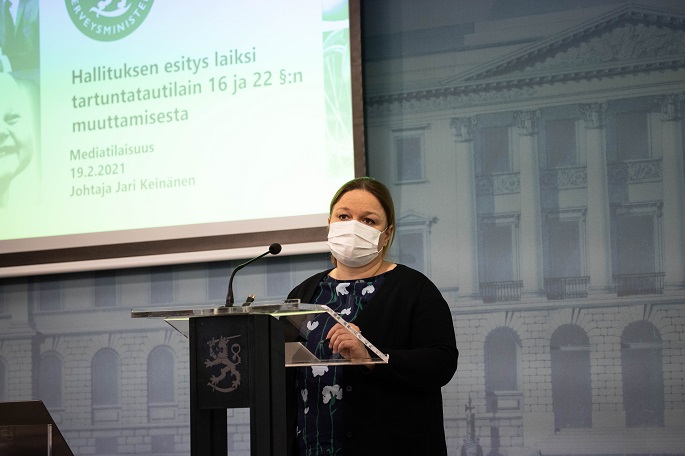CDA amended to facilitate local, regional actions
Published : 20 Feb 2021, 01:12
Updated : 20 Feb 2021, 10:21
The amendments to the Communicable Diseases Act (CDA) have been approved by parliament on Friday and will enter into force on 22 February 2021, said the Ministry of Social Affairs and Health in a press release.
The CDA amendments will strengthen the possibilities of local and regional authorities to take proactive and swift measures to prevent the spread of COVID-19.
Most of the amendments will remain in force until 30 June 2021.
Under the amended Act, the authorities can introduce regional restrictions on business and leisure activities when this is necessary to prevent the spread of the epidemic. Any obligations and restrictions will thus be based on avoiding physical contact between people.
In line with the action plan for implementing the hybrid strategy to curb the COVID-19 epidemic, the measures are introduced gradually so that obligations and restrictions can be tightened again, if earlier measures prove to be insufficient.
In the acceleration phase, regional authorities can decide that activities must be arranged in such a way that no close contacts are created. To ensure that their activities are safe, businesses can choose the best way to operate so that customers can avoid close contact with one another in practice. This can mean space arrangements, staggered timetables or, alternatively, restricting the number of customers.
The Finnish Transport and Communications Agency can also decide to restrict the number of passengers by a maximum of 50 per cent during the acceleration phase.
In the community transmission phase, the municipality or the Regional State Administrative Agency can close businesses or other facilities that are intended for customers and participants for a period of two weeks.
This can only be applied to those facilities and spaces defined in the Act that may generate significant infection chains. These include indoor and other sports facilities, public saunas and swimming pools, dance halls, amusement parks, indoor playgrounds, and public space in shopping centres.


